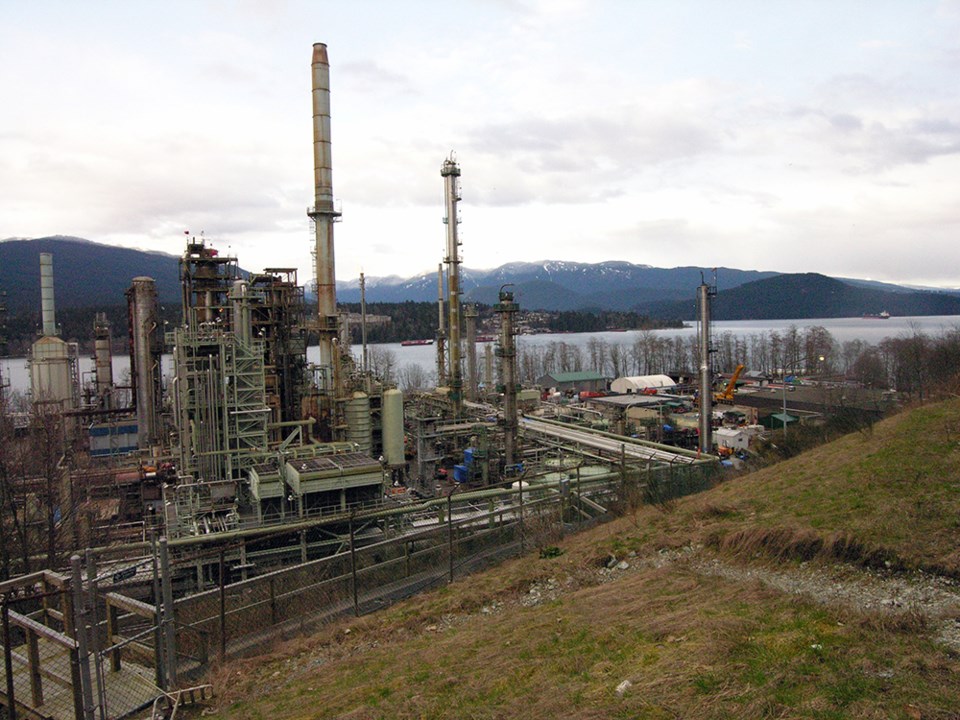The union for Chevron's refinery workers is criticizing the bidding system Kinder Morgan uses for its Trans Mountain pipeline, claiming large American companies are putting the squeeze on Canadian jobs.
Kinder Morgan charges oil companies a fee to transport their products through the pipeline, and each month the companies bid on how much volume they can run through. The problem is the line can only handle so much oil, and companies always want more than the maximum capacity. Kinder Morgan divides up the allotted shipping volumes, but Chevron has had problems securing enough supply for the local refinery.
"Yet again, Canada's natural resources are being taken advantage of be foreign firms, and the government is doing nothing to stop it," said Unifor's Western director Joie Warnock in a media release.
The union has submitted evidence to the National Energy Board, demonstrating that larger American refineries are overbidding and squeezing out smaller refineries, some of which need to buy oil back at inflated prices.
According to the union, 75 per cent of the oil that comes through the Trans Mountain pipeline goes to foreign markets.
"If the government doesn't step in, the Kinder Morgan pipeline will become a pure export pipe," said Russ Day, spokesperson for the local that represents the refinery workers. "Our natural resources should create long-term Canadian jobs and meet Canadians' energy needs."
Thirty to 40 per cent of petroleum products in the Lower Mainland come from Burnaby's Chevron refinery, the only major refinery left in the province. Chevron started bringing oil into the Burnaby refinery via truck and rail to bolster its supply.
The Trans Mountain pipeline expansion won't necessarily solve the refinery's supply problem either, as most of the oil is destined for foreign markets.
Kinder Morgan was not available for immediate comment, but we are expecting a statement from the company, so check this story for updates.



